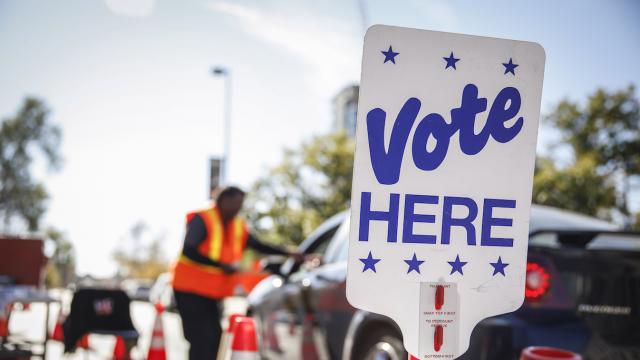
If you want good job security, get elected to Congress. In 2016, the U.S. House had a 97 percent re-election rate, despite the latest Gallup poll placing the House’s approval rating at 21 percent.
A big part of the reason why is the way we elect our representatives. The U.S. uses a winner-take-all, single-member district system. Those districts are often drawn in a way to privilege one party over another — which is called gerrymandering. So if you’re a Democrat living in a district drawn to include a huge number of Republican voters, your vote is purposely drowned out (and vice versa).
And the winner-take-all, first-past-the-post system means that if you want to vote for a third party, your vote will often be “wasted,” as two parties compete to get the most votes and other votes are considered inconsequential to the outcome. If a candidate wins 40 percent of the vote, while her two opponents get 30 percent each, the first one wins, even though 60 percent of the district voted against her. That dynamic effectively forces political actors to sort themselves into two parties, or risk being boxed out of power entirely.
Gerrymandering, combined with the way voters have sorted themselves into cities and rural areas, means that even while Democrats consistently win a majority of votes cast for House candidates, Republicans wind up controlling the House of Representatives regardless.
A group of representatives in the House want to change this system, and are introducing legislation to change this system and make America’s federal elections more representative and competitive.
Virginia Democratic Rep. Don Beyer authored and introduced the Fair Representation Act, which would enact a series of reforms designed to make our elections more competitive and open them up to more parties. Democratic Reps. Ro Khanna of California and Jamie Raskin of Maryland have co-sponsored the legislation.
The bill would do three things: require all congressional districts to be drawn by independent redistricting commissions, establish multi-member districts, and have all districts use what’s known as ranked-choice voting (RCV).
The independent redistricting would take power away from partisan legislatures to draw congressional district lines, meaning that one party or another could no longer engage in gerrymandering.
Multi-member districts would mean that voters in each district would have the opportunity to elect multiple legislators to represent them instead of just one — which would mean that more people in the district would have the opportunity to elect someone closer to their own ideology rather than being stuck with one lawmaker who may or may not represent their viewpoint.
Finally, perhaps the most significant reform in the bill is RCV. Under this system, voters would be able to rank their preferences among various candidates and parties, rather than simply casting one vote for each office. If no candidate receives a majority of first-preference votes, then second-preferences are accounted for, and so on, until one candidate has a majority. Under RCV, you can vote your conscience without helping a candidate you loathe win instead.
RCV would make it so that there is no longer anything as a “wasted” vote — if your candidate ends up not being one of the top two candidates in the election, you can deliver your other votes to one of those instead. It would also force major party candidates to respect third-party voters and their ideas — after all, they would want their second-preference votes, and their third, and so on and so forth.
Lastly, it would eliminate the need for expensive runoff elections, as under this system the runoffs would be instantaneous.
Watch this video from the Minnesota Public Radio explaining how RCV works. Minneapolis has used this system for local elections since 2009.
(Maine’s voters approved RCV in a referendum in the 2016 election; however the state’s supreme court is blocking the move.)
In an interview with The Intercept, Rep. Khanna stressed the benefits the bill would have in changing Congress to make it more representative of Americans.
“The reform of Congress is one of the biggest priorities to empower citizens,” he said. “This would help with minority representation and more women because many times communities in a small population are shut out and multi-candidate districts would allow them to have proportional voice.”
He also said it would help finally open up America’s so-called “two-party system” to more political choice and competition thanks to RCV.
The major obstacle is getting a Congress full of incumbents from the two parties to support legislation that would cut against their own self-interest. Khanna suggested that only grassroots pressure moves legislators to act.
“The challenge is how do we get that kind of thinking that we need to challenge incumbency and we need to challenge the two-party system in a Congress where everyone has bought into that system?” he asked. “That’s where I think Don Beyer showed I think extraordinary courage in introducing this bill. The only way that change is going to come is if we have the grassroots citizens start to demand that change.”
Originally published by The Intercept
3 WAYS TO SHOW YOUR SUPPORT
- Log in to post comments
















